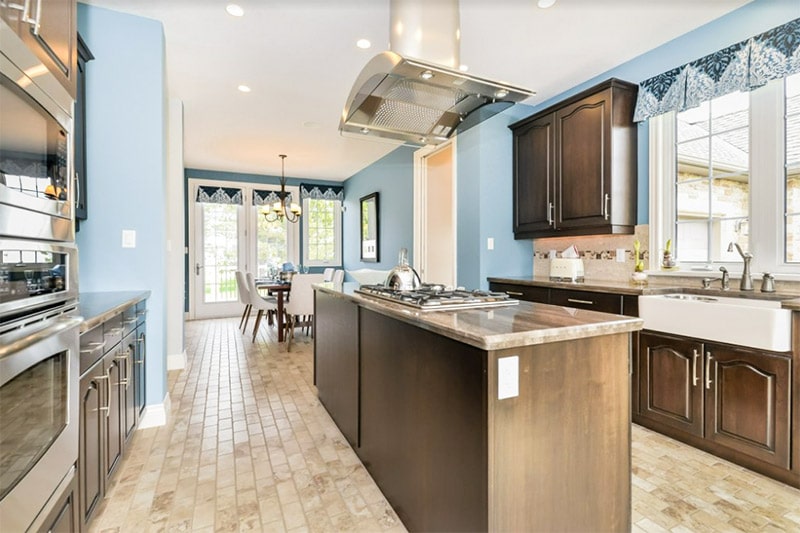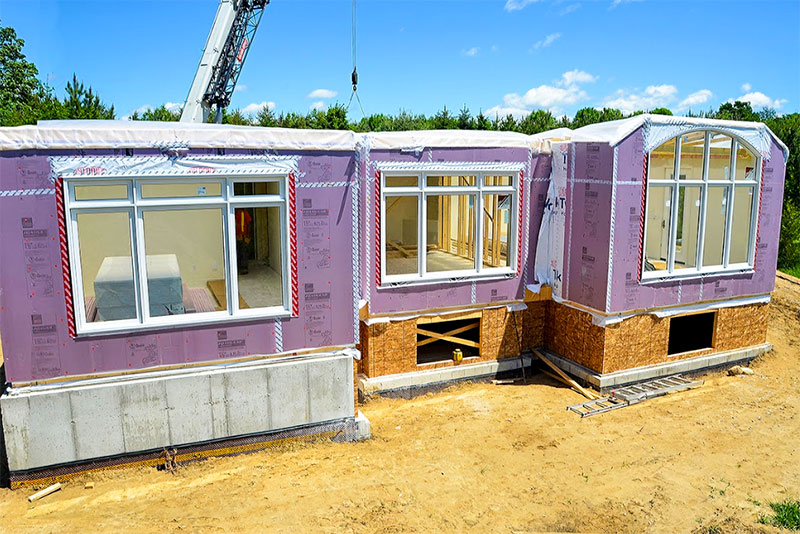The idea of building a new home from the ground up can be daunting. If you sell your old house first, it could also mean not having a home during the construction period.
Buying a pre-existing house seems like a valuable shortcut: the house is already there, so I just need to make a few changes and move in, right?
Not always. There’s a fine line between “fixer-upper” and “teardown”, and the difference may only become apparent after you have signed the papers. Here are some of the advantages when building a new home vs. buying a resale.
Design Choices

Unless you are planning to spend a very long time looking, it can be difficult finding a home that will exactly match your preferred design. One significant advantage to building is that you can design it right from the ground up to suit your unique needs and taste.
When you are paying the equivalent of several years’ salary for a permanent residence, shouldn’t it be as close to ideal as possible, starting with the right size? Design options are especially plentiful if you decide to build a modular home.
Energy Efficiency and Technology

Having an energy-efficient dwelling is very important for both the home’s owners and the planet. Designing from the ground up makes it easier to incorporate the latest green technology into your living space.
There are many options to choose from and having additional freedom in design allows you to incorporate more of them. Greater energy efficiency also equals lower utility bills, which means more money in your savings account.
If you want to have the latest in smart technology, a new home’s design can accommodate that, too. It allows for easier and more effective placement of wiring to accommodate security, internet, cable, and entertainment centres.
New Home Warranty
Each Canadian province offers a home warranty program with registered builders that protects buyers for a set number of years. Some builders also offer additional years above and beyond the minimum dictated by that province.
Health
Old homes may look majestic, but some are bad for your health. The older the structure, the greater the possibility of contaminants like mould, lead paint, or asbestos, as well as issues like faulty wiring or illegal renovations.
While the seller may address the issues that are in plain view, you might discover others down the road after it is too late. New homes must adhere to the latest codes and protect occupants from known health hazards.
Better Resale Value
When the time comes to move, a home that is 5-10 years old is of greater appeal to most people than one that is much older. That means less expense for you when preparing the house for the market, plus the ability to get a higher asking price.
Be Part of a New Community
If you choose to build in an expanding area, you will have access to the latest in schools, shopping areas, libraries, recreational facilities, and more. These will be more likely to consider green living, meaning accommodations like bike trails, and boast a greater number of accessible facilities and stores for those with physical challenges.
Big Repairs are Well Down the Road
With everything being new, there is little risk in the near future of having to replace your furnace, the roof, windows, and other parts of a home that can cause major financial woes.
